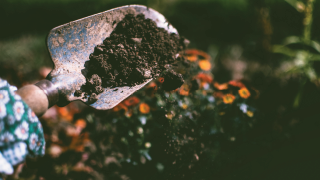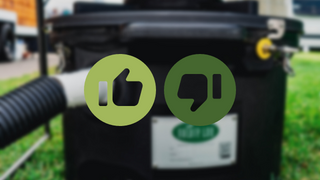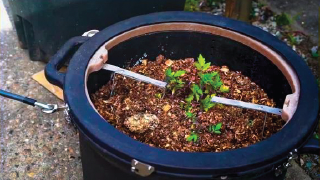We get asked a lot of questions about some messy topics like how diarrhea, menstruation, medication and vomiting can affect composting. So we’ve decided to consolidate as much information about this for you here.
Diarrhea
The quick and easy answer to “can my composting toilet handle diarrhoea?” is - yes, it absolutely can! Because diarrhoea typically has more liquid in it than regular poo you will want to add some extra bulking agent on top (more than you would for regular solid waste). This will ensure that the extra liquid is being compensated for and the compost heap will remain the right consistency. The fan will also be working to evaporate any excess liquid that is not draining into the evaporation chamber.
To be safe, check after a couple of days to make sure that the pile has absorbed that waste appropriately to fully process the excess liquid content.
Menstruation
Many people are concerned with the introduction of period blood to a composting heap; but as blood is still a natural, biological product, it can break down just as well. Obviously, we don’t want any pads, tampons or other sanitary products going directly into the toilet, as they are not compostable. But the little period blood we will be adding into the heap won’t be enough to change the 'composition' of the compost. You can even empty your menstrual cup directly into the toilet itself. If you have a urine diverting toilet, you would add this to the solid deposits as blood is thicker it will drain slower and evaporate slower than urine.
Blood is nitrogen and protein rich which will only add to the benefits of your compost by the end, making it especially great indoor plant food.
Medication
We recommend you be aware of any medications you’re on when composting waste as some medicines do not break down in your body or in the ground. Most medicines such as over the counter pharmaceuticals and birth-control will be fine; hormone therapy and supplements will also not contaminate your heap in any negative way. However chemo drugs are toxic and if introduced to your compost heap, the toxins can kill the microbes and bacteria.
Antibiotics are fine in the short term - the antibiotics that we create to fight infection are almost always based on natural products so although these are synthetic replications they are still appropriate to go into your composting heap. If you are using these medicines for an extended period of time, any longer than a week, we would recommend not using your composting toilet as too much can actually prevent the bacteria in your heap from self replicating. If this occurs your composting toilet becomes a collection chamber that will take far longer to compost.
Vomit
Vomiting into your compost toilet is normally ok but can prevent composting in excessive amount. As is the case with diarrhoea, you will want to ensure that you are compensating for the extra liquid by adding a handful of bulking agent on top of the waste. Our stomach acid is also much more acidic than the composting heap is; stomach acid is between 1.5-3.5 on the PH scale and ideally we want our compost to be sitting in the neutral 6-8 territory.
Realistically what this means is that a small amount of vomit will not be enough to dramatically change the PH balance of the compost heap but if there is a lot of it and it is consistently added then this will start to have a detrimental effect. The bulking agent and the fan working to absorb and aerate the compost respectively will assist in balancing the PH.

As is the case with most things in life - moderation is key! Keep an eye on your heap and be observant for any unusual smells and odours, which are normally the first indication of something going wrong.
If you have any questions or concerns, be sure to















